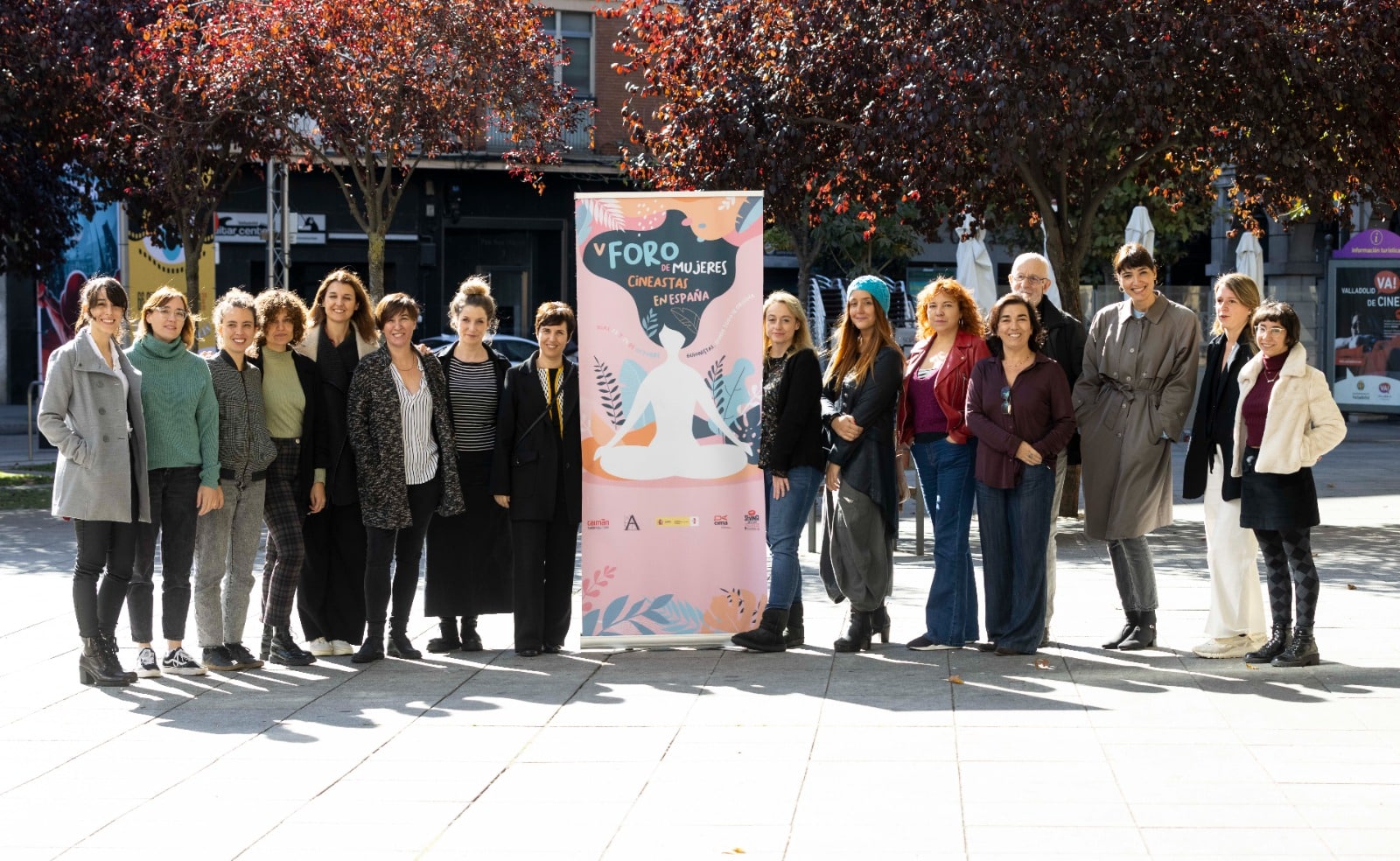Teatro Calderón’s Hall of Mirrors hosted today Sunday, October 24, 2021, the presentation of the conclusions of the 5th Forum of Women Filmmakers, which focused on this occasion on female screenwriters. In this framework, the participants in the sessions have brought to the table not only the demands of the sector, involving the need to promote, make visible and support the presence of women both in training institutions and in decision-making spaces, among others, but also the situation that the collective of woken film-writers has gone through in recent decades.
In relation to the conclusions emanating from the meetings, which were read by Lola Mayo, Clara Jiménez and Coral Cruz, the participants advocated the diversity that characterizes them, which is reflected in their stories and means distancing themselves from the concept of “all uniform” that they often feel saddled with. Likewise, and after rejecting the stereotype whereby the jobs created by women are of interest only to women themselves, they demanded similar budgets to those of their male colleagues, since they currently manage less than half the average funds, and the extension to all televisions of specific aid schemes for films made by women.
All three screenwriters called on their colleagues to join associations and collectives which are “essential” for the protection of their rights, and highlighted the need to provide more visibility to the work carried out by women in a context of “absence of feminine career benchmarks”.
“We are not a group, we are half the population,” the scriptwriters asserted in their conclusions, which also stress the need to break the barriers imposed by of stereotypes about women in the framework of fictional products created by men and pervaded with anthropocentric contents, as well as the importance of having more women in positions of responsibility.
Attracting and encouraging the presence of female students in film schools, relating the work of screenwriters with that of executive producers and including this connection in the audiovisual educational curriculum, as well as consolidating the “spaces conquered ” at a time when there is a growing interest in listening to female voices in the seventh art were other claims raised by the participating woman scriptwriters.
In fact, according to the report prepared by Concha Gómez, from UC3M, in the 20th century there were only 13 registered female scriptwriters compared to 425 men. Even so, the figures changed with the emergence of private TV networks , which made it possible that in 2012 the female ratio rose to 24%, although their presence in the genre of animation , for example, continued to be virtually non-existent.
From that moment on, according to the study, the presence of women authors of fiction scripts for television gradually reached 39.5%. “This has had an important translation in what we see on film screens,” pointed out the author of the study and academic researcher, for whom it is important to analyse whether this growth in gender representation also extends to levels of power and, therefore, decision-making capacity.
In addition to the three scriptwriters who appeared to release the forum’s conclusions, the event was also joined by Isabel Peña, Valentina Viso, Virginia Yagüe, Marina Parés, Elena Molina, Belén Sánchez, Paula Jiménez, Elisa Puerto, Clara Roquet, Silvia Herreros de Tejada and Ángela Armero.



























![Logo Foro Cultural de Austria Madrid[1]](https://www.seminci.com/wp-content/uploads/2024/09/Logo-Foro-Cultural-de-Austria-Madrid1-300x76.jpg)








